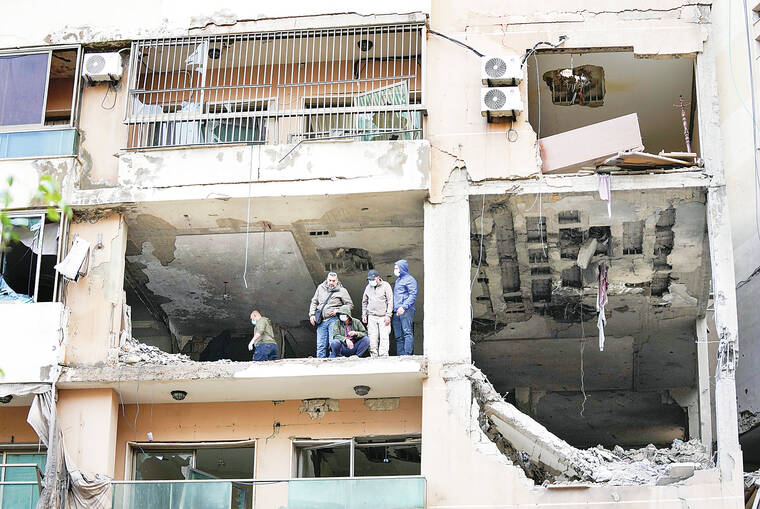Israel’s Mossad chief vows to hunt down Hamas members a day after senior figure killed in strike
The chief of Israel’s Mossad intelligence service vowed Wednesday that the agency would hunt down every Hamas member involved in the Oct. 7 attack on Israel, no matter where they are. His pledge came a day after the deputy head of the Palestinian militant group was killed in a suspected Israeli strike in Beirut.
Israel has refused to comment on reports it carried out the killing, but the remarks by David Barnea appeared to be the strongest indication yet it was behind the blast. He made a comparison to the aftermath of the slayings at the Munich Olympics in 1972, when Mossad agents tracked down and killed Palestinian militants involved in killing Israeli athletes.
ADVERTISING
Israel was on high alert Wednesday for an escalation with Lebanon’s powerful Hezbollah militia after the strike in the Lebanese capital killed Saleh Arouri, the most senior Hamas member slain since the war in Gaza erupted nearly three months ago.
The strike in Hezbollah’s southern Beirut stronghold could cause the low-intensity fighting along the Lebanon border to boil over into all-out war.
In a speech Wednesday evening, Hezbollah leader Hassan Nasrallah promised revenge, repeating his group’s statement that “this dangerous crime” of Arouri’s killing will not go “without response and without punishment.” But he left the audience guessing as to when and in what form.
Nasrallah said Hezbollah had so far been careful in its strategic calculus in the conflict, balancing “the need to support Gaza and to take into account Lebanese national interests.” But if the Israelis launch a war on Lebanon, the group is ready for a “fight without limits.”
“They will regret it,” he said. “It will be very, very, very costly.”
Arouri’s killing provided a morale boost for Israelis still reeling from the Oct. 7 attack as the militants continue to put up stiff resistance in Gaza and hold scores of hostages.
Barnea said the Mossad is “committed to settling accounts with the murderers who raided the Gaza envelope,” referring to the area of southern Israel that Hamas attacked. He vowed to pursue everyone involved, “directly or indirectly,” including “planners and envoys.”
“It’ll take time, as it took time after the Munich massacre, but we will put our hands on them wherever they are,” he said. Barnea was speaking at the funeral of former Mossad head Zvi Zamir, who died at age 98 a day earlier.
Zamir headed the intelligence agency at the time of the Munich attack, in which Palestinian militants killed 11 members of the Israeli Olympic delegation.
Hezbollah and the Israeli military have been exchanging fire almost daily over the Israeli-Lebanese border since the war in Gaza began. But Nasrallah has appeared reluctant to escalate it further, perhaps fearing a repeat of the monthlong 2006 war, when Israel heavily bombed Beirut and southern Lebanon.
At the same time, Hezbollah also faces pressure to show support for its ally Hamas.
Nasrallah’s comments on balancing interests reflected the group’s wariness of being blamed by Lebanese if its exchanges with Israel spiral into an all-out war that brings destruction similar to the 2006 war. He avoided specifics on any possible reprisal for Arouri’s killing.
But he said if Israel attacks Lebanon, it would be in the national interest to fight back. “We are not afraid of war,” he said.


